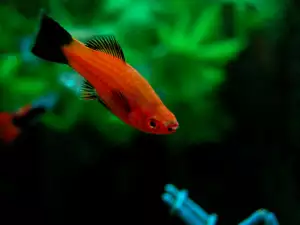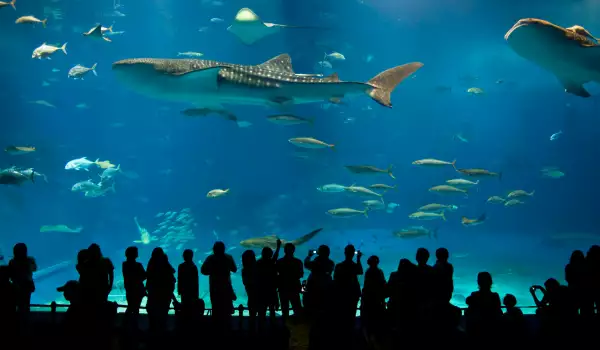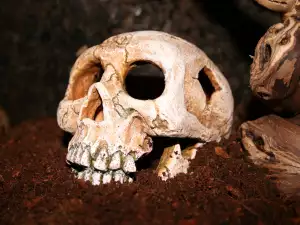Canadian scientists have conducted an experiment with fish to get them to walk on land, as happened in the dawn of evolution.
The experts from McGill University have been working with the idea, which sounded crazy at first glance, for some time. According to them, through their experiment, they will get the clearest idea of how exactly evolution took place, writes Nature journal.
They hope to gain knowledge of what changes took place in the first living creatures to ever come out on land more than 400 million years ago.
For their experiment, the scientists used 111 fish from the species polypterus senegalus, also called dinosaur eels. They raised them for about 8 months in specially chosen conditions with water and a hard surface.
The water in which the fish lived was only 0.1" (3 mm) deep. Along with it, the scientists used sprayers, so that the fish would have the necessary amount of moisture. The scientists also created normal conditions with water, where they put in 38 fish.
This species of fish has functioning lungs, thanks to which they can breathe air. Scientists have noticed that most of the time, representatives of polypterus senegalus crawl but sometimes they use their fins to "walk".

According to some sources, this species even moves from one water basin to another using their fins, but these reports are too scarce.
After the 8 months had passed, the researchers analyzed the changes that took place in the skeletal structures of the fish. They discovered that the "participants" in the experiment, that lived in very little water, developed a more confident "gait" and lifted their heads up higher. It became clear that the same specimens had altered bone shapes and more elongated clavicles.
Still, scientists remind that the conducted experiment only provides a guideline about what exactly happened so many years ago but not the full picture.
The scientists will repeat the experiment, in order to see the changes in the muscles of the fish. A 3rd experiment will show what would happen if they were to remain longer in a dry environment.









